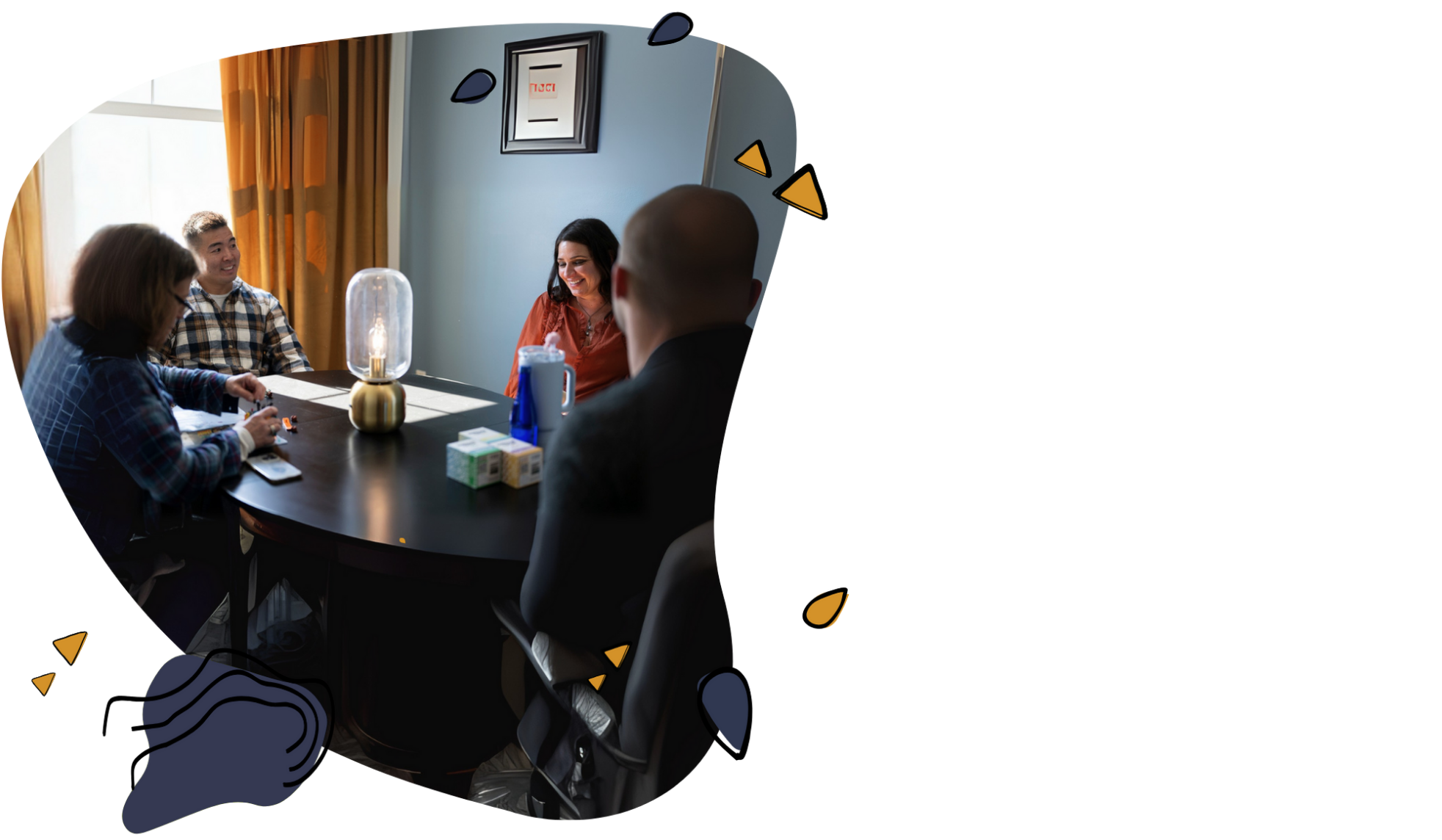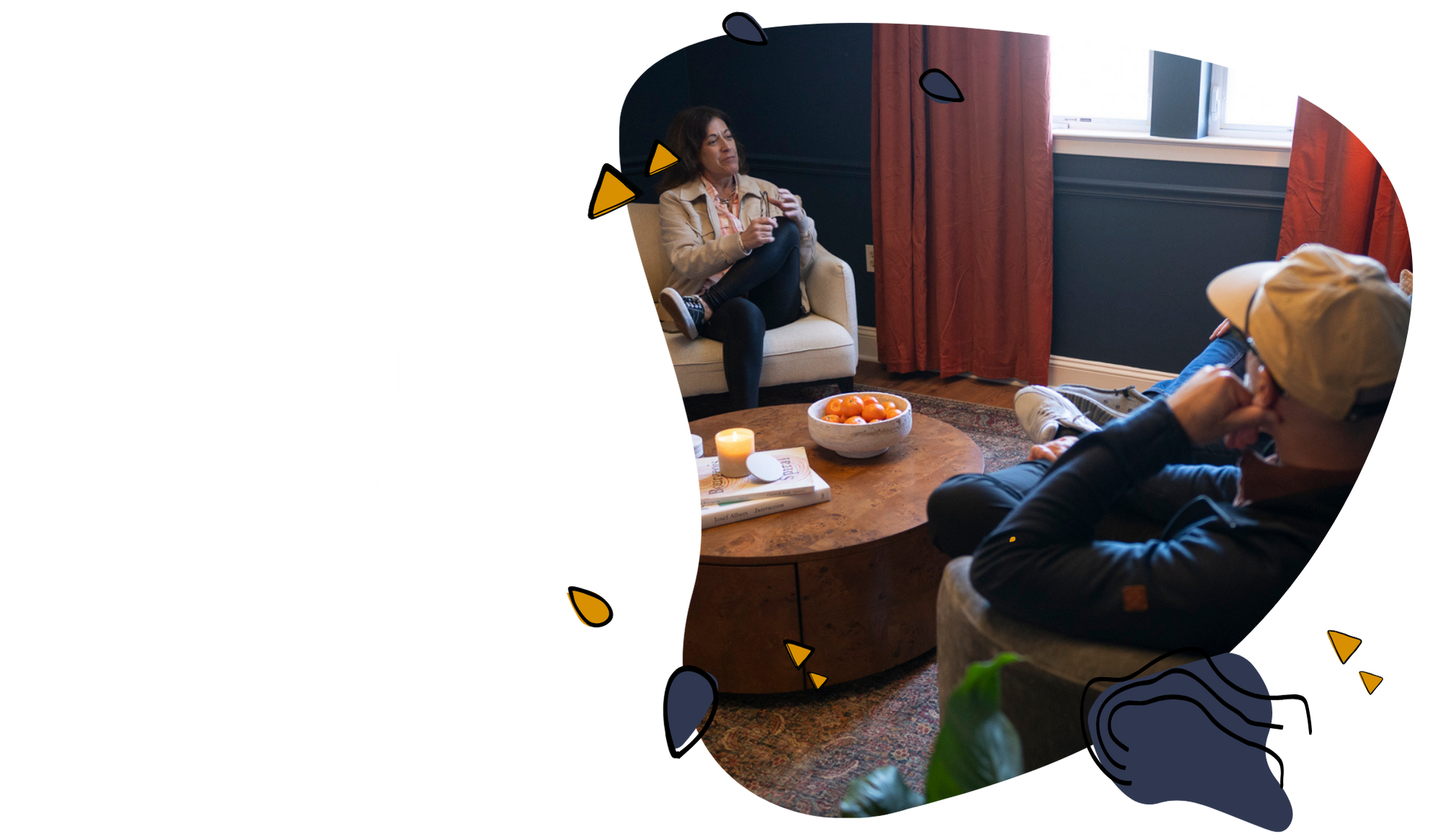Substance Abuse & Addiction Counseling
At GIA Institute of Psychotherapy, we help support those struggling with addiction and substance abuse through various outpatient therapeutic approaches. Our trained therapists can help you navigate early sobriety and how to incorporate recovery into your daily life. Before starting your outpatient therapy journey with us, we do strongly recommend first completing the appropriate levels of care for stabilization. If you are new to recovery or don’t know where to start for a higher level of care, please visit: The Department of Human Services or call 1-844-REACHNJ (1-844-732-2465).
Continue Your Recovery
Therapies for Substance Abuse & Addiction
There are many medical, therapeutic, and holistic approaches to treating addiction and substance abuse, but there are some modalities that work better than others. We implement several that have worked well for our clients who are battling addiction.
Cognitive Behavioral Therapy (CBT)
CBT helps individuals struggling with addiction identify and change negative thought patterns and behaviors that contribute to substance use. By learning healthier coping skills and recognizing triggers, you or your loved one can better manage cravings and make lasting changes in their recovery journey.
Dialectical Behavior Therapy (DBT)
DBT is especially effective for people who struggle with intense emotions or use substances to cope with pain or stress. It teaches emotional regulation, mindfulness, and healthy relationship skills, which helps one stay grounded, reduce relapse risk, and build stability in their life.
Eye Movement Desensitization and Reprocessing (EMDR)
EMDR helps individuals process unresolved trauma or painful experiences that often fuel addiction. Through guided eye movements or other forms of bilateral stimulation, we can reduce emotional distress tied to past trauma and move toward healing and sobriety with greater emotional freedom.
Art Therapy
Art Therapy provides a creative outlet for expressing emotions that can be difficult to put into words. It helps individuals process grief, trauma, and stress while developing self-awareness and healthier coping mechanisms which are all key components in overcoming addiction and rebuilding confidence. Art therapy is a great holistic approach to addiction that can give you or your loved one a lasting skill and hobby that will allow them to maintain their sobriety for the rest of their life.
Rational Emotive Behavior Therapy (REBT)
Rational Emotive Behavior Therapy (REBT) can be a very effective approach in addiction recovery because it helps individuals identify and challenge the irrational beliefs and thought patterns that often drive addictive behaviors. Developed by Albert Ellis, REBT focuses on how our beliefs about events—rather than the events themselves—shape our emotions and behaviors.
Family Therapy
Family therapy can be a powerful part of recovery for individuals struggling with addiction. Addiction impacts not just the person using, but the entire family system, which creates cycles of conflict, mistrust, and emotional distance. In family therapy, members work together to understand how addiction affects their relationships and to learn healthier ways to communicate and support one another. The focus is on rebuilding trust, improving boundaries, and helping each person recognize their role in the healing process.
Families are encouraged to connect with community resources such as Al-Anon, Nar-Anon, or family education programs offered through treatment centers. These groups provide additional understanding, peer support, and tools to cope with the emotional challenges of loving someone in recovery.

Our Approach
Our therapists are highly experienced in addiction treatment and recovery, having worked across multiple levels of care—from inpatient programs to private practice. With extensive knowledge of community and recovery resources, our therapists offer comprehensive support tailored to each individual and family’s needs.
These sessions are designed for individuals who have completed stabilization and are in active recovery. Participants are often individuals ready to reintegrate into their daily lives while exploring how addiction has impacted themselves and their relationships.
We use the above therapies along with a space to address underlying emotional or mental health struggles that contribute to addictive behaviors, helping clients and families strengthen communication, trust, and resilience.
What To Expect At GIA
-

We're your therapists next door, ready to help you continue your journey to recovery, and rewrite your story.
-

We will start by getting to know YOU and then you and your therapist will work together to outline a treatment plan that makes sense for your goals.
FAQs About Substance Abuse Therapy
Can Counseling Eliminate the Need to Attend Drug or Alcohol Rehab Programs?
Every individual’s recovery journey is unique, but research consistently shows that long-term sobriety is most successful when treatment follows a continuum of care—beginning with stabilization in a structured rehab setting (detox, residential, or intensive outpatient) and transitioning into ongoing therapy. Think of rehab as the medical and physical foundation of recovery, where the body and brain begin to heal, and therapy as the continued process of mental, emotional, and spiritual healing. Counseling alone may not be enough for those with moderate to severe substance use disorders, but it plays a critical role in sustaining recovery once stabilization is achieved.
How Do I Know if a Family Member is Struggling with Drugs or Alcohol?
If you feel that something seems “off” with a loved one, it’s often a sign that something deeper may be going on. While only the individual can acknowledge their addiction, family members are often the first to notice changes in mood, energy, routines, or behavior. If you suspect a problem, therapy can help you process your observations, learn how to approach the situation with empathy, and build healthy communication patterns that foster a nonjudgmental, supportive environment.
If a Loved One Is Struggling with Addiction, Can I Reach Out for Help for Them?
Absolutely. You can reach out for guidance and support even if your loved one isn’t ready to seek help themselves. Counseling can teach you how to support your loved one’s recovery journey without enabling addictive behaviors. You’ll learn about topics like codependency, healthy boundaries, intervention strategies, and available treatment resources. Most importantly, you’ll gain emotional tools to protect your own well-being while encouraging your loved one toward recovery.
How Long After Completing Rehab Should Someone Attend Therapy?
Ideally, therapy begins immediately after completing each stage of the treatment continuum—detox, residential, partial hospitalization, and intensive outpatient—before moving into traditional outpatient therapy. Time away from substances allows for mental clarity, emotional stability, and readiness for deeper self-reflection. Continued therapy helps address trauma, strengthen mental health, and foster spiritual and emotional growth, which are key components in sustaining long-term recovery.
Talk to a Counselor
Are you or a loved one ready to rewrite your story?
We look forward to working with you to continue your treatment journey while learning how to better understand your feelings and gain clarity on your future without addiction.



